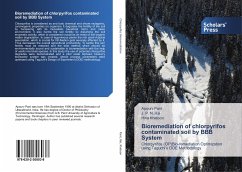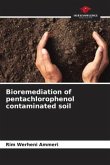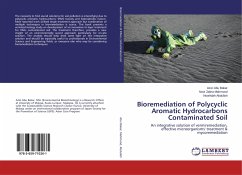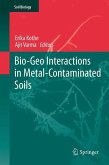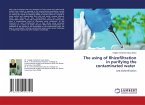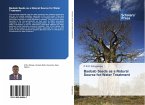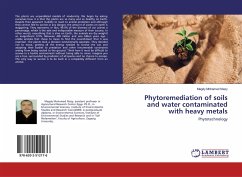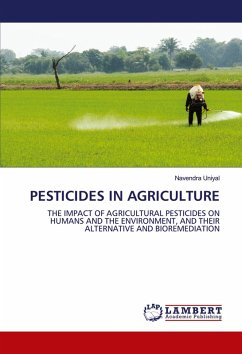Chlorpyrifos is considered as and toxic chemical and shows mutagenic, carcinogenic properties on organism. It degrades the fertility of the soil by hampering with its mutualistic beneficial micro and meso environment; it also harms the soil fertility by disturbing the soil enzymatic activity, which is considered crucial as an index of soil organic matter degradation. In case of leguminous plants the rich plant-rhizobia association, which is crucial for N2-fixation gets severely affected by it. Thus decreases the overall agricultural productivity. To tackle this soil fertility must be restored and the best method which should be environmentally sound and sustainable is bioremediation with the help of useful microbial species. In this study the use of potential chlorpyrifos degrades were demonstrated and a pilot scale biphasic bioslurry bioreactor system was created, whose process parameters were optimized using Taguchi's Design of Experiment (DOE) methodology.
Bitte wählen Sie Ihr Anliegen aus.
Rechnungen
Retourenschein anfordern
Bestellstatus
Storno

